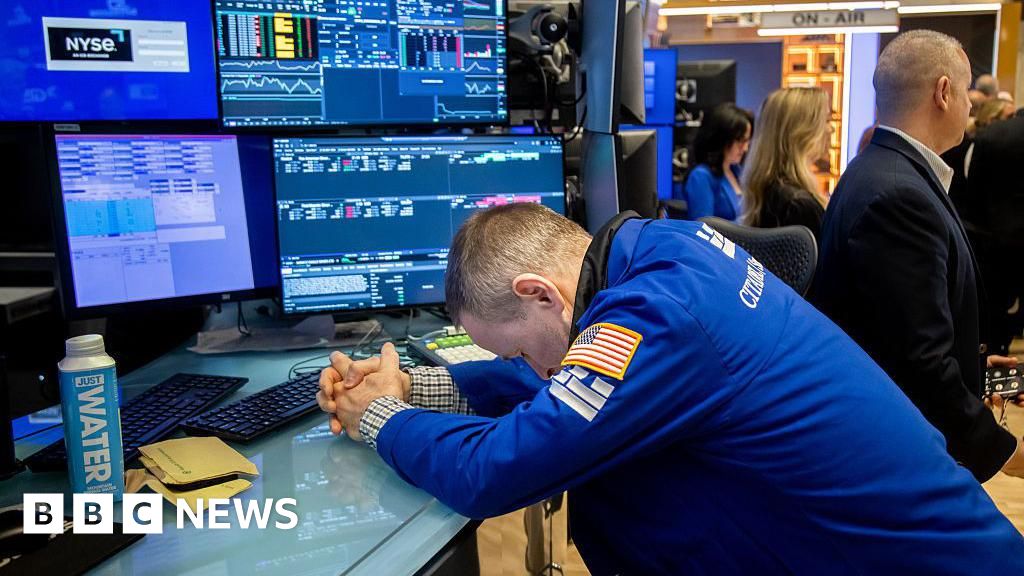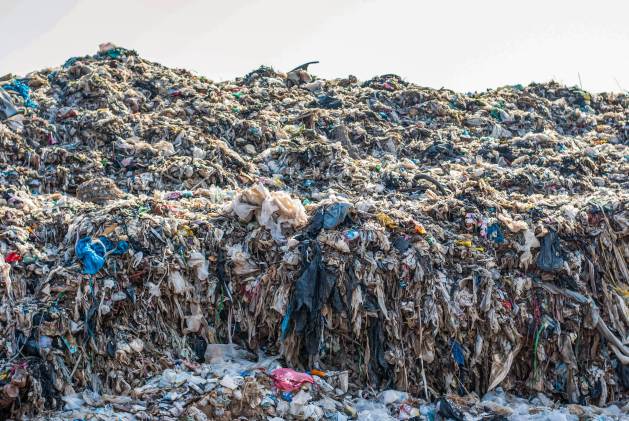Wild market swings as tariffs rattle US economy
Shares in the US stemmed their losses on Monday, as investors clung to hopes that US President Donald Trump would turn from tariffs to trade deals.
The S&P 500, which tracks 500 of the biggest companies in the US, ended the day down about 0.2%, after a wild day of trading that saw shares gyrating from losses to gains in some of the sharpest swings since the Covid-19 pandemic.
The respite came despite Trump escalating his tariff threats against China, as US Treasury Secretary Scott Bessent said he was opening negotiations with Japan, and looking forward to talks with other nations.
Trump offered mixed signals, saying he expected some tariffs to be permanent and some to be negotiated.
“They can both be true,” he said, while rejecting calls that he delay the import taxes he unveiled on goods from every country in the world last Wednesday.
The White House has said more than 50 countries have reached out to discuss trade.
“I believe that sooner or later, we will be at the negotiating table,” European Union trade official Maroš Šefčovič said, as the bloc prepared to vote on how to respond.
In the days after Trump’s announcement, stock markets in the US and in the UK were hit by their worst one-day falls since the beginning of the Covid pandemic in 2020.
The S&P 500 has seen more than 10% of its value wiped out over three days – a drop almost as steep as the declines seen during the 2008 financial crisis and at the onset of the pandemic in 2020.
The index is now trading at levels seen roughly a year ago, reflecting widespread concerns about the impact of the tariffs on the US and global economies.
“It is frustrating for investors,” said Mike Mussio, president of FBB Capital. “This feels like kind of an unforced error in terms of policy.”
High profile business leaders in the US including Jamie Dimon, Trump-backer Bill Ackman and Daniel Loeb have started to speak out amid the market rout.
But Trump has doubled down on his strategy.
On Monday, he threatened to hit imports from China with an additional 50% tariff, unless Beijing withdraws the retaliatory measures it announced last week.
That would take the tax on Chinese goods coming into the US to at least 104% – as it comes on top of the 34% tariff he announced on goods from China last week, which themselves added to the tariff of at least 20% imposed since January.
China’s decision to impose retaliatory tariffs of 34% on the US had already escalated worries about a trade war between the two nations
If world leaders are unable to agree terms with Trump, the tariffs may have a destructive effect on economies globally, analysts have warned.
“Fundamentally, investors are worried about a big hit to corporate [profits] and a massive slowdown in economic growth,” said Russ Mould, investment director at AJ Bell.
In early trading on Monday, the S&P 500 fell, briefly dropping more than 20% since its most recent peak in February – which would mark a milestone known as a “bear market”.
But a rumour that the White House was considering putting tariffs on hold sent shares surging more than 7% in a matter of minutes.
Howard Silverblatt, senior index analyst at S&P Dow Jones indices, said that he had seen few comparable swings in a career spanning more than four decades on Wall Street.
“That’s enormous,” he said. “There’s a lot of uncertainty here and that’s what’s driving the market.”
The Dow Jones Industrial Average closed down 0.9%, but the Nasdaq was roughly flat, up 0.1%.
European markets closed lower, with London’s FTSE 100 falling 4.4% to 7,702, its lowest level in more than a year.
Shares in Paris and Berlin also dropped, while earlier leading indexes in Asia had plunged in what one analyst described as a “bloodbath”.
The fears weighed on the price of oil which fell more than 4%, before gaining back some ground.
Meanwhile, copper, an indicator of economic growth because it is widely used in industry, fell roughly 3%, while the price of gold, which is usually seen as a “safe” investment, also dropped.
Check out our Latest News and Follow us at Facebook
Original Source







